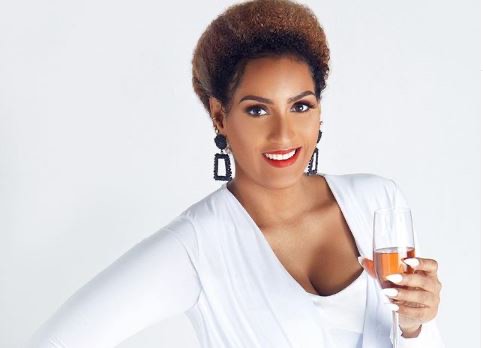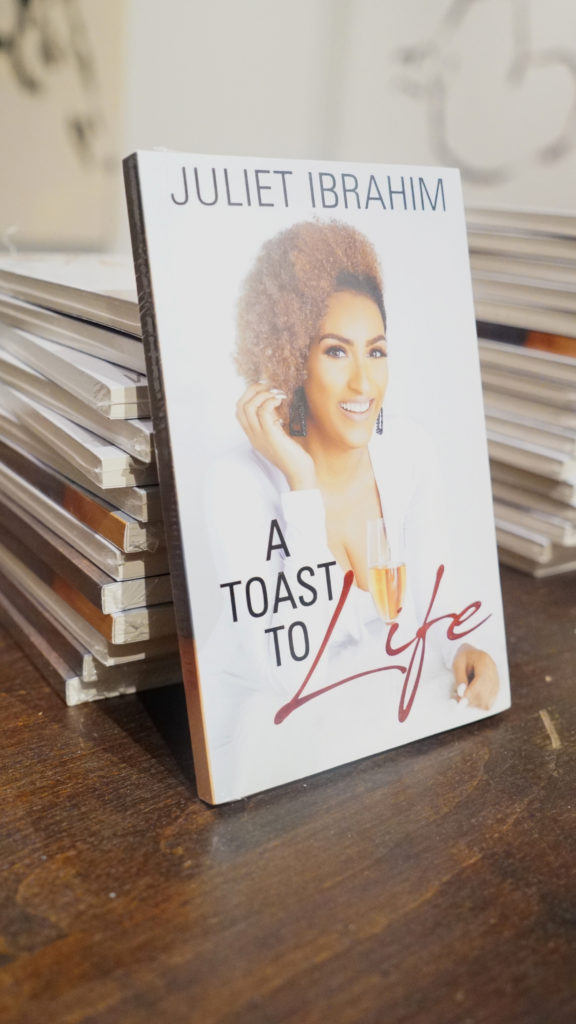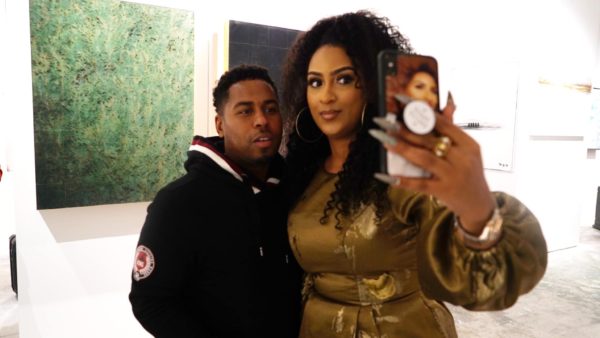Nollywood actress Juliet Ibrahim seemed to have experienced more hardship before she reached adulthood than many do their whole lives.
The 33-year-old lived through three civil wars, was molested as a child and encountered frequent rejection in the film industry because of how she spoke, she said.
“My life has been one hell of a rollercoaster ride,” Ibrahim penned in the introduction to her new autobiography, “A Toast To Life.”

Still, amid all the destruction she witnessed, she dreamed of being a star.
“I just saw myself on stage,” she said.
Now an award-winning actress, film producer and singer, Ibrahim went on to be featured in more than 100 productions, according to her book.
She also founded her own eyelash line, launched a music video production company and started the nonprofit Juliet Ibrahim Foundation to eradicate several diseases in Ghana and other African countries.
Ibrahim was born in Ghana to a Lebanese father and a Liberian mother, and the starlet was raised in Liberia, the Ivory Coast, Ghana and Lebanon, with most of the moves representing different conflicts she and her family had to flee.
The first forced her out of her home when she was only 6 years old, Ibrahim said. Another sent her fleeing rebels and jet bombers along an Ivory Coast border.
Ibrahim said people don’t truly understand what it means to be a refugee.
“We don’t understand how they feel,” she said. “People are dying in front of you.”
Ibrahim said fireworks still scare her.
“I’m thinking, ‘Oh God, what’s happening,'” she said.
The actress decided she needed to share her story.
“I just feel like a lot of people can relate to these stories,” she said.
After falling short of a fundraising goal to pay for a movie chronicling her life, the actress decided to write a book instead.
“It took me two years to actually put the book together,” she said.

When she did, she revealed more than she was even prepared to share with her closest relatives.
Ibrahim wrote in her book that she was about 8 years old when her mother sent her to her favorite uncle’s room to retrieve something and he molested her.
He told Ibrahim to close the door, unzipped his trousers and forced her to touch his genitals, the author said.
She added that her mom only found out about the encounter after reading the book.
“I couldn’t bring myself to tell her,” she said.
She also changed her uncle’s name in print.
“She had so much love for him. I just didn’t know how to break her heart,” Ibrahim said of her mother.
The author admitted part of what took so long writing her book was gaining the courage to reveal her story.
“It’s not easy to be vulnerable to the world and let everybody into your space,” she said.

So instead of writing about her life in a negative light, she chose to pen her story as a celebration of her journey and the strength she gained.
“I can survive in any situation,” Ibrahim said.
Her road to acting wasn’t smooth and perfectly paved either. After getting lucky initially, a dry period followed in Ghana, Ibrahim said.
Producers told her her accent was not a typical Ghanaian accent. She admitted it wasn’t. It was a mix of dialects from all the regions she had lived in, but the rejection hurt.
“I was really down,” she said. “I was depressed.”
Ibrahim didn’t catch another break until she met with a Nigerian director in Ghana who told her he had one scene in a movie for her.
“I just took a leap of faith,” Ibrahim said.
She did the scene, and someone who saw her made a phone call to a director on her behalf.
It led to a lead role in Lagos, Ibrahim said.
“They didn’t care about accent,” she said.
The Nigerian film industry is so diverse actresses didn’t need to sound the same, Ibrahim said.
“And I became so popular in Nigeria that the Ghanaians started requesting me for acting,” she said.
The takeaway for Ibrahim was to keep going.
“Every story, whether of triumph or failure, is one I celebrate because I am alive,” she penned.


